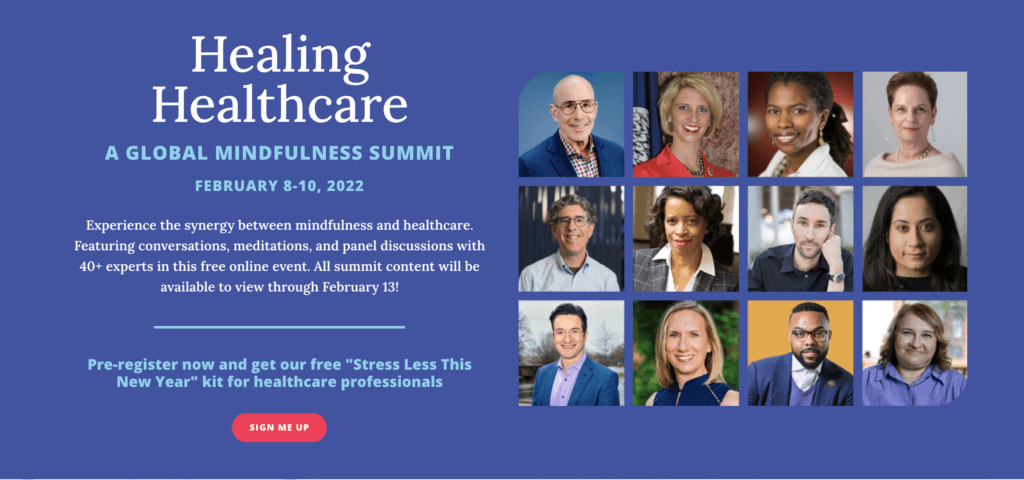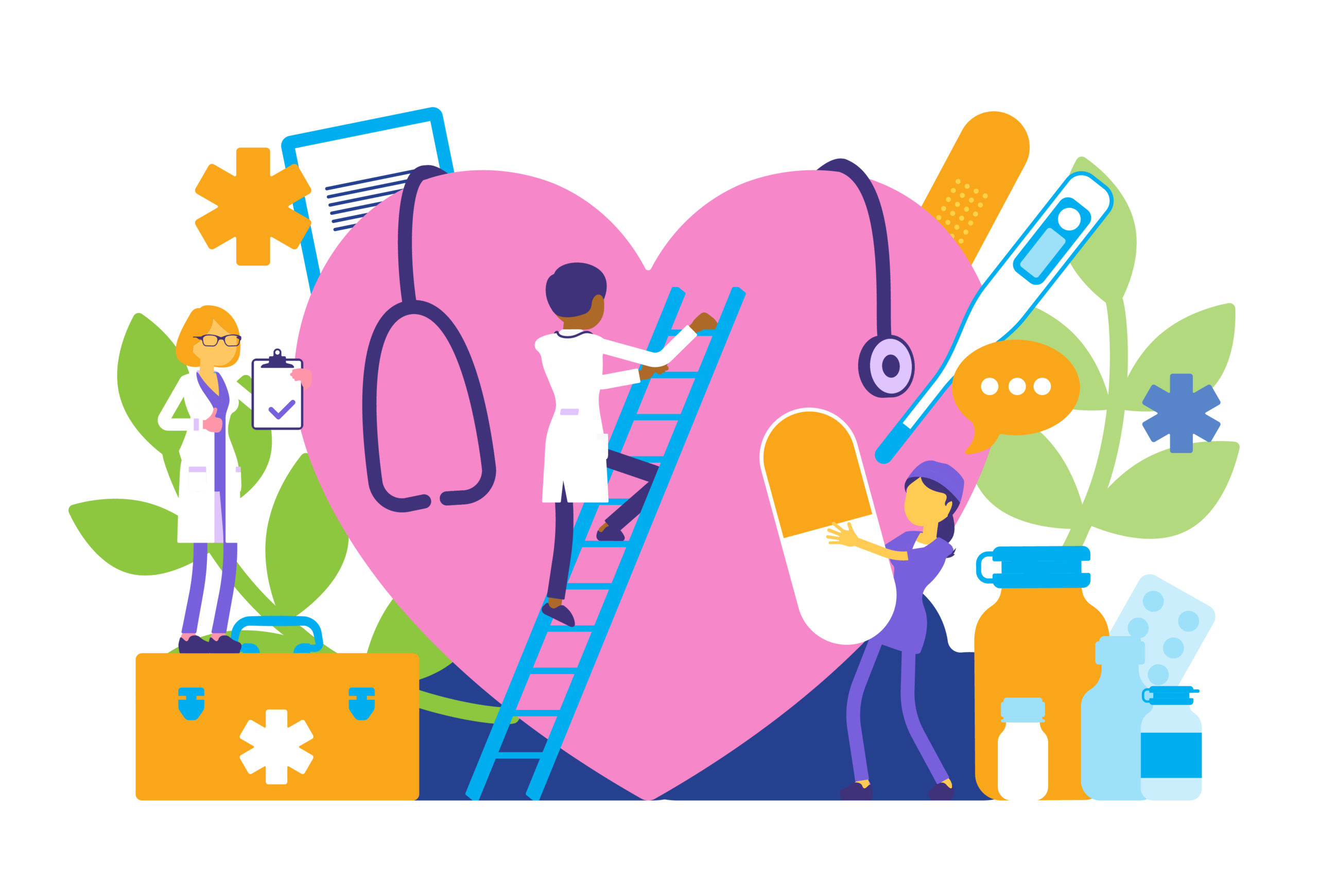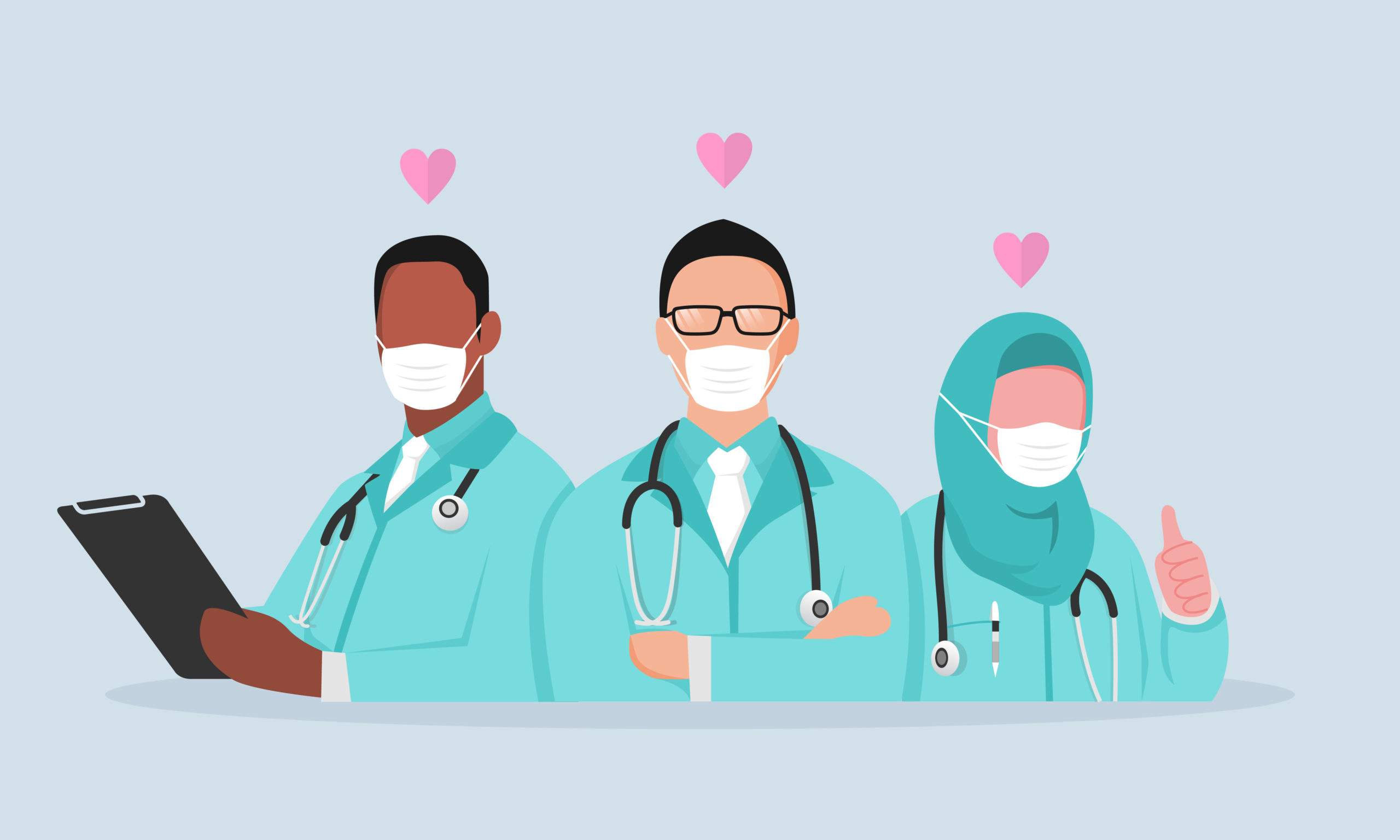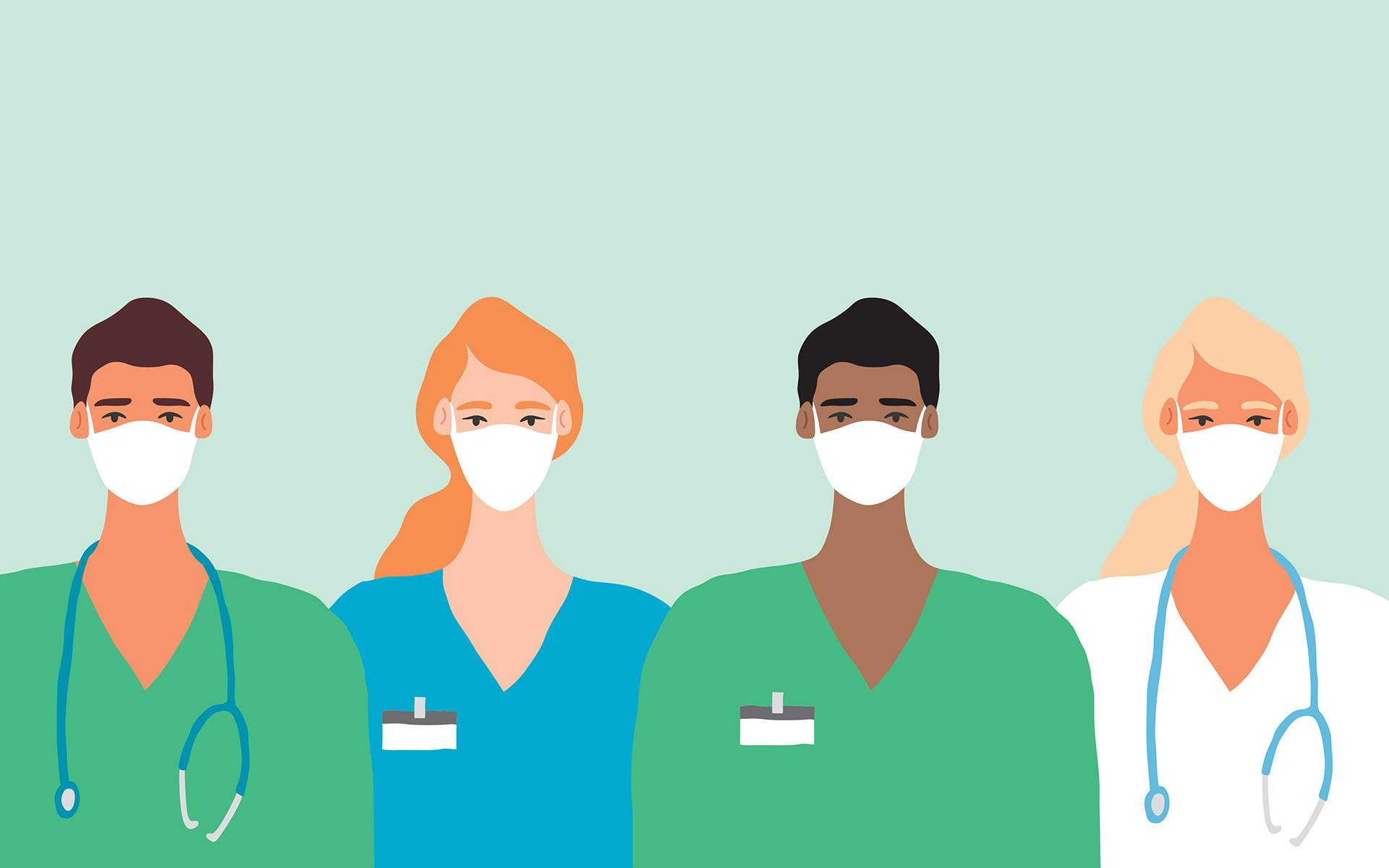If you’re a healthcare professional, then I’d like to start by saying thank you. Thank you for serving our communities during these many months of pandemic, through civil unrest and endless uncertainty.
There’s still a lot of deep grief, PTSD, and burnout caused by COVID that has yet to be fully addressed in health care. Levels of burnout have reached an all time high with 51% of nurses reporting exhaustion and 61% of physicians reporting burnout. This decrease in mental well-being fed into the great resignation with health care having the 2nd highest turnover of any industry.
We need to reimagine what a healthy healthcare system looks like. A tall task as we enter the third spring of the pandemic while being called to tap into deeper reserves of resilience and skill.
A growing body of research shows that mindfulness practices can have life-changing impacts on individuals as well as entire systems. Equanimity—that calmness, composure, and stability that allows us all to be skillful—also helps fortify our ability to be empathetic and compassionate in the face of challenges. If we can imbue our healthcare systems with mindfulness, we can shift the way we view each other, the way we design our systems, the way we make decisions—From educating the next generation of doctors, to talent acquisition, to how we’re getting care out to all people wherever they are.
When we tune in to our innate capacity for mindfulness, we’re better equipped to show up for our patients, our loved ones, and ourselves, without burning out.
Four Mindfulness Tools to Support Healthcare Workers’ Resilience
If you are one of the healthcare workers who continues to selflessly serve in countless ways as the pandemic evolves, offer yourself a moment of kindness and gratitude. Here are four simple tools, recommended by fellow healthcare professionals, that may help you show up for yourself with some kindness, tap into your strength, and find calm and clarity in the midst of chaos.
- Find little moments to pause throughout the day. This isn’t about imposing complicated self-care routines, which often don’t help because they require more time than you can give to them. Rather, this is about intentionally engaging in micro-moments of checking in with yourself. Physician Mark Bertin offers this doorknob practice. In medicine, it’s called a doorknob practice because it only takes a few moments. Each time you put your hand on a doorknob to enter a room for the next experience with another human being, whether it’s a patient visit or an administrative meeting, you can try this S.T.O.P. practice:
S – Stop what you’re doing.
T – Take a few breaths.
O – Observe and check in with what’s going on around you.
P- Pick how to proceed. Ask yourself, “What’s the most skillful thing to be doing next?” - Take time to shift out of “work mode.” At the end of a long shift, we often mentally and emotionally take work home with us. Dr. Reena Kotecha, a medical doctor and founder of the Mindful Medics: Healthcare starts with Self Care program, and Dr. Chris Willard, a psychologist and Harvard Medical School professor, recommend creating a small transition ritual at the end of your shift before stepping into your home space to help you release this lingering stress. “This may be a short internal dialogue to signal to yourself that you are transitioning from work mode to home mode,” they say, “or it may be grounding yourself while standing outside your front door by taking a moment to feel your feet on the step.” To the extent that you can, give yourself permission to disconnect from work when you get home. Get a feel for arriving fully in the present moment with this 12-minute guided meditation.
- Reconnect with your intrinsic values. Moral suffering refers to the sense of dissonance that occurs when nurses, doctors, and other care providers feel that their actions in the context of patient care aren’t in alignment with their integrity as healthcare professionals. “Moral suffering leads nurses to feel compromised at a deep level,” says Dr. Cynda Hylton Rushton, a professor of nursing and pediatrics at Johns Hopkins University and coauthor of Moral Resilience. While moral distress and suffering point to systemic issues that must be acknowledged in order to change them, research shows that mindfulness can help you to connect with your integrity—the deeply-rooted values that initially led you to the challenging work of caring for others. Dr. Hylton Rushton shares this gentle, healing guided meditation to simply be present with yourself and your purpose: “Rest in the space of really remembering who you really are,” she says.
- Connect with others and share your stories. On February 8-10, 2022, we’re hosting a free Healing Healthcare Global Mindfulness Summit, gathering fellow healthcare professionals to experience a genuine opportunity to dive deeper into your own experience as a healthcare professional during COVID. Join experts in organizational and trauma-informed mindfulness, leading healthcare executives and thousands of frontline healthcare professionals, as we share our stories, celebrate what’s working, and envision a path forward. (If you can’t make it to the live event, all summit content will be available to view for free through February 20.)
The Healing Healthcare Summit is a real-time experience of how mindfulness and compassion practices support not only our mental health, but also the communication, resilience, and relationship tools we all need to thrive. We hope you’ll join this community of caring professionals for three days of networking, peer-to-peer conversations, and research-backed mindfulness practice—Let’s reimagine the future of healthcare together.

read more
Mindfulness for Healthcare Professionals
Accessible mindfulness and mindful healthcare practices, meditations, and resources for healthcare workers.
Read More
P.A.C.E. Yourself: A Practice Honoring Healthcare Workers
We are all safer because of the work of healthcare providers. With deep gratitude, Dr. Reena Kotecha invites those working on the frontlines to take a moment to prioritize self-care.
Read More
8 Ways Healthcare Workers Can Reduce Stress
Dr. Reena Kotecha and Dr. Chris Willard offer a collection of quick tips to help other healthcare professionals rediscover moments of calm and self-care, even during a grueling work day.
Read More









